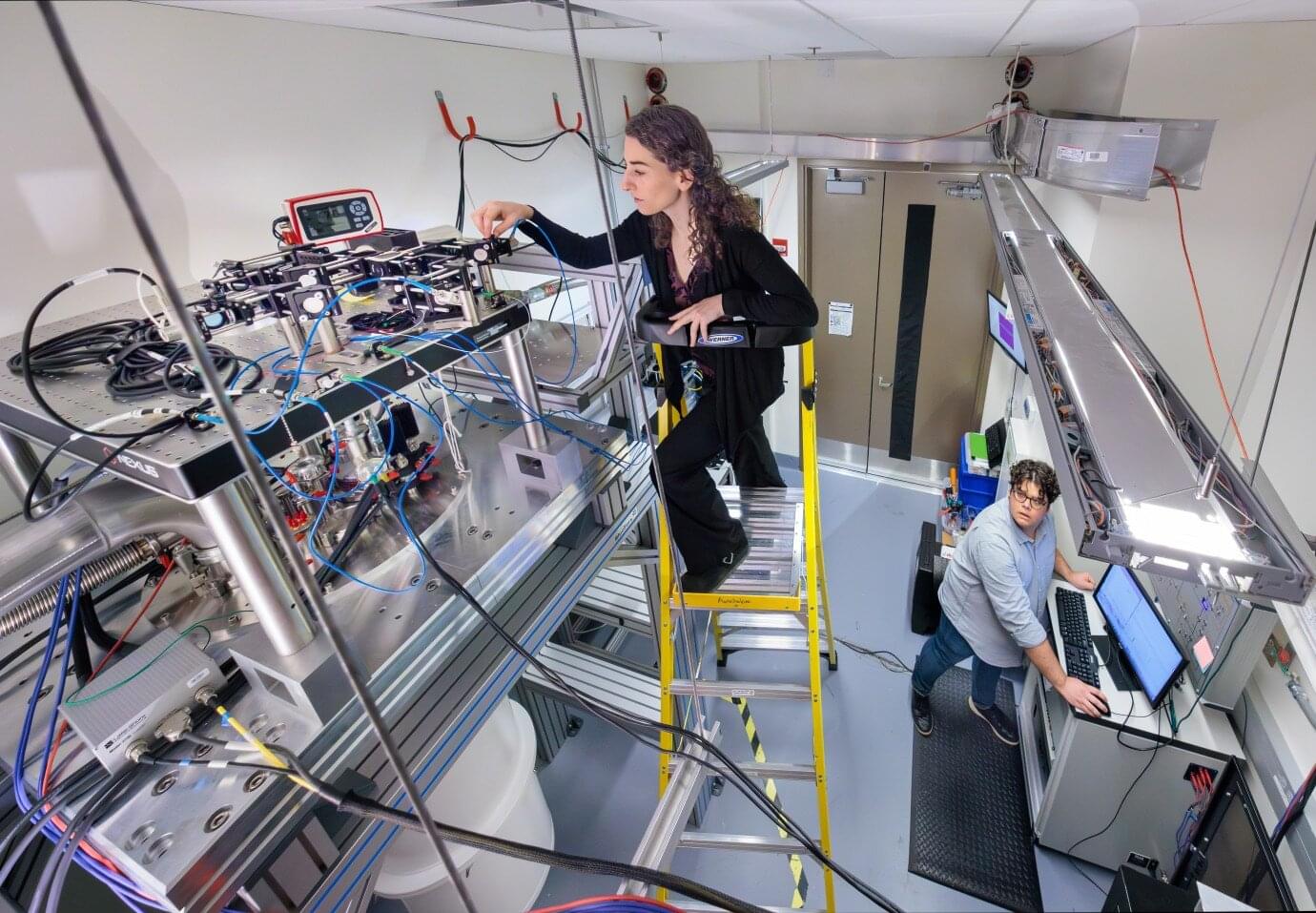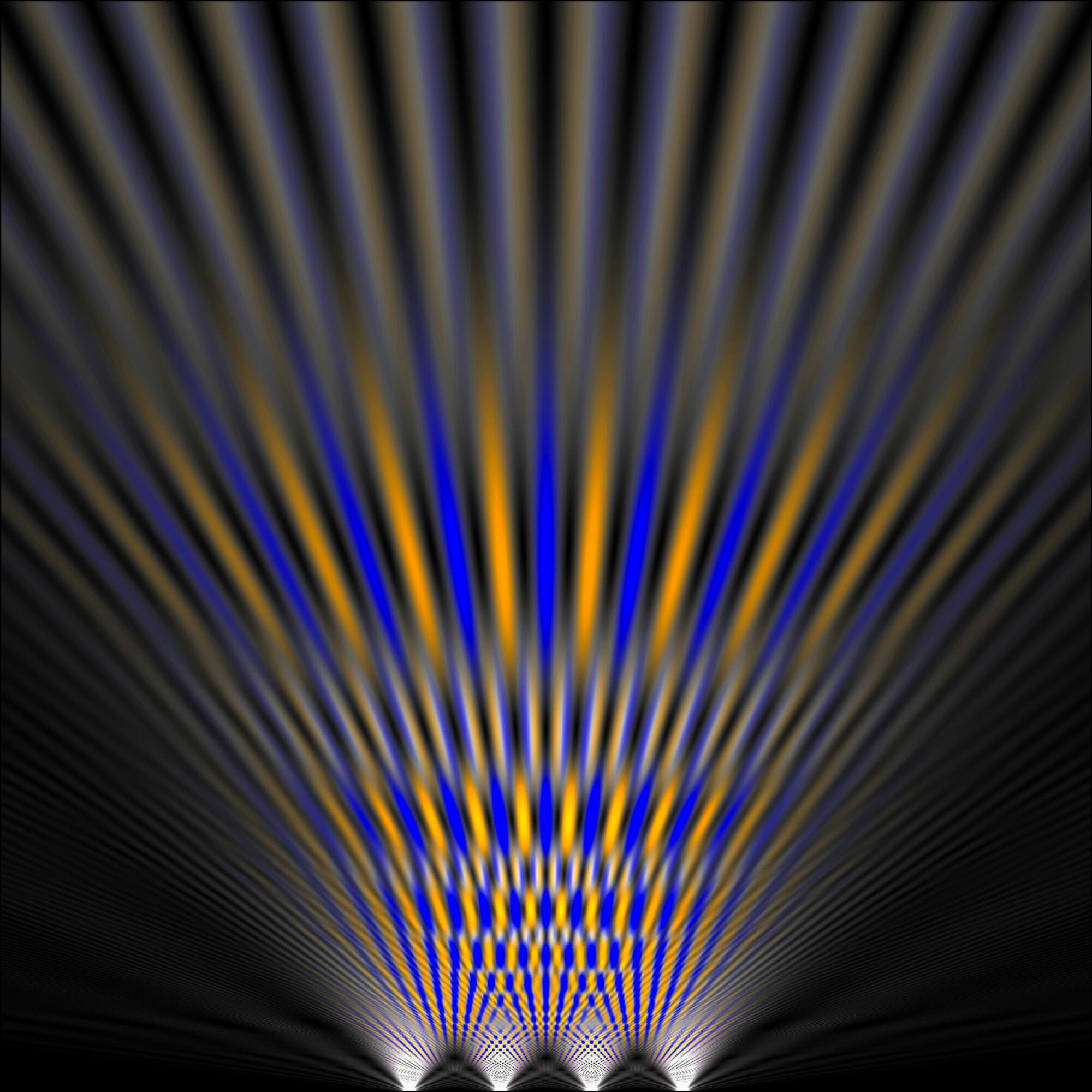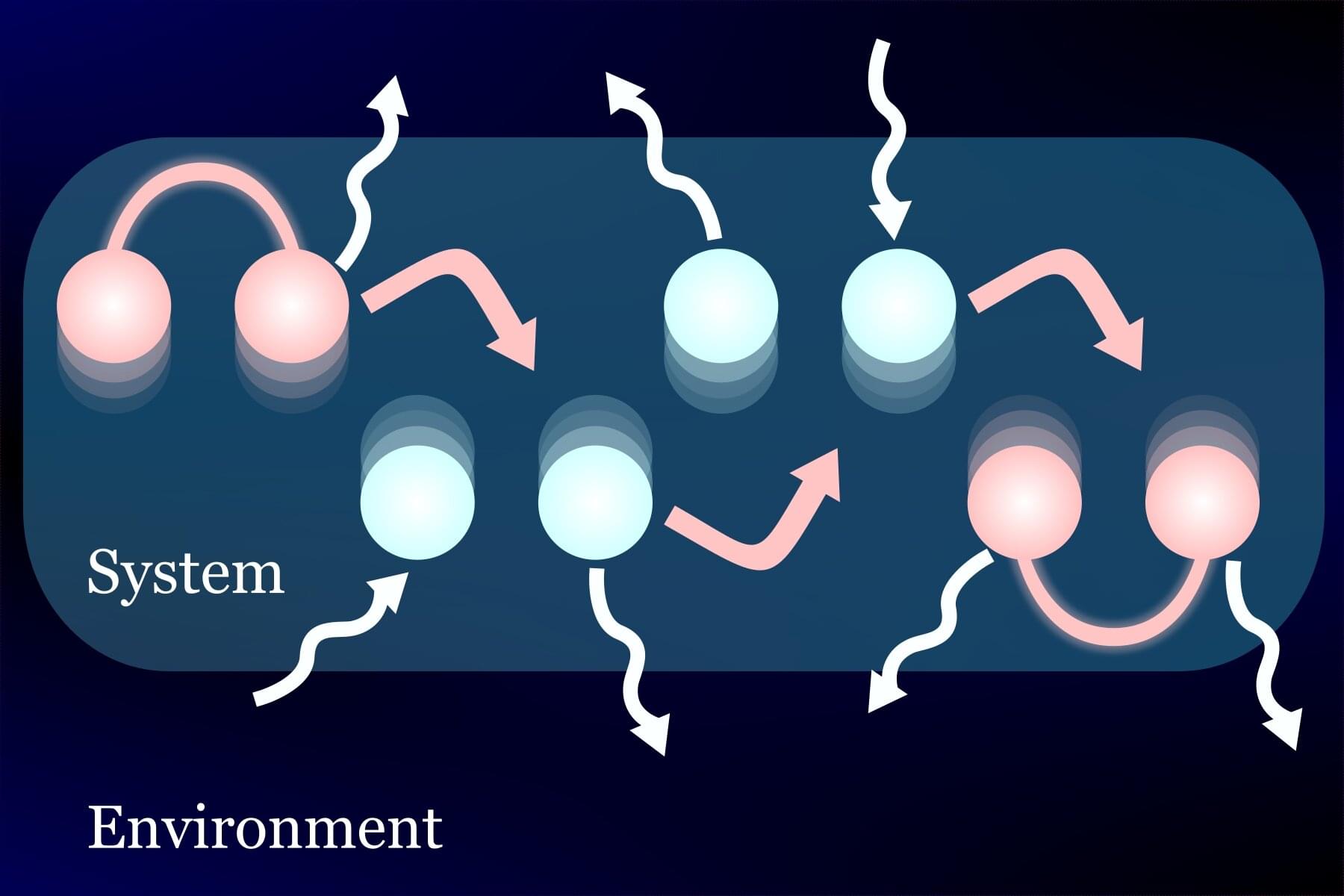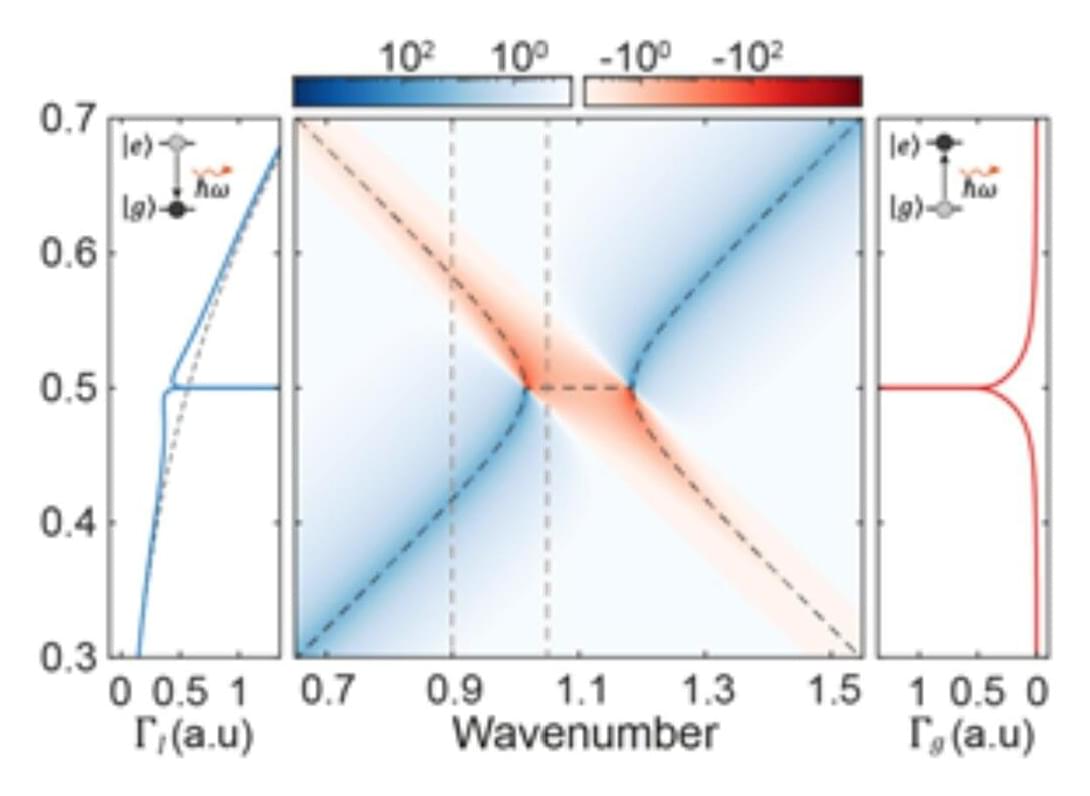Researchers demonstrated a framework that integrates quantum simulators and cloud services with supercomputers to run hybrid applications.




A team of scientists from the University of Chicago, the University of California Berkeley, Argonne National Laboratory, and Lawrence Berkeley National Laboratory has developed molecular qubits that bridge the gap between light and magnetism—and operate at the same frequencies as telecommunications technology. The advance, published today in Science, establishes a promising new building block for scalable quantum technologies that can integrate seamlessly with existing fiber-optic networks.
Because the new molecular qubits can interact at telecom-band frequencies, the work points toward future quantum networks—sometimes called the “quantum internet.” Such networks could enable ultra-secure communication channels, connect quantum computers across long distances, and distribute quantum sensors with unprecedented precision.
Molecular qubits could also serve as highly sensitive quantum sensors; their tiny size and chemical flexibility mean they could be embedded in unusual environments—such as biological systems —to measure magnetic fields, temperature, or pressure at the nanoscale. And because they are compatible with silicon photonics, these molecules could be integrated directly into chips, paving the way for compact quantum devices that could be used for computing, communication, or sensing.

In the era of instant data exchange and growing risks of cyberattacks, scientists are seeking secure methods of transmitting information. One promising solution is quantum cryptography—a quantum technology that uses single photons to establish encryption keys.
A team from the Faculty of Physics at the University of Warsaw has developed and tested in urban infrastructure a novel system for quantum key distribution (QKD). The system employs so-called high-dimensional encoding. The proposed setup is simpler to build and scale than existing solutions, while being based on a phenomenon known to physicists for nearly two centuries—the Talbot effect. The research results have been published in the journals Optica Quantum, Optica, and Physical Review Applied.
“Our research focuses on quantum key distribution (QKD)—a technology that uses single photons to establish a secure cryptographic key between two parties,” says Dr. Michał Karpiński, head of the Quantum Photonics Laboratory at the Faculty of Physics, University of Warsaw.

A small yet innovative experiment is taking place at CERN. Its goal is to test how the CERN-born optical timing signal—normally used in the Laboratory’s accelerators to synchronize devices with ultra-high precision—can best be sent through an optical fiber alongside a single-photon signal from a source of quantum-entangled photons. The results could pave the way for using this technique in quantum networks and quantum cryptography.
Research in quantum networks is growing rapidly worldwide. Future quantum networks could connect quantum computers and sensors, without losing any quantum information. They could also enable the secure exchange of information, opening up applications across many fields.
Unlike classical networks, where information is encoded in binary bits (0s and 1s), quantum networks rely on the unique properties of quantum bits, or “qubits,” such as superposition (where a qubit can exist in multiple states simultaneously) and entanglement (where the state of one qubit influences the state of another no matter how far apart they are).

SCP 22, known as The Morgue, is one of the most chilling and mysterious anomalies in the SCP Foundation archives. A simple hospital basement in Great Britain became the stage for an impossible phenomenon: cadavers rising without life, objects vanishing into nowhere, and a morgue that behaves less like a room and more like a machine.
In this speculative science deep dive, we explore SCP 22 through the lenses of biology, physics, and consciousness. Could these reanimated cadavers be powered by quantum vacuum energy? Is the morgue recycling entropy across dimensions? Or is it a misunderstood mechanism that uses humans as raw material for unknown purposes?
This essay-video blends science, philosophy, and horror to uncover the enigma of SCP 022.
If you enjoyed this video, leave a comment with your theory, subscribe for more speculative science essays, and share it with anyone who loves the SCP universe.

Quantum computing is still in its early stages of development, but researchers have extensively explored its potential uses. A recent study conducted at São Paulo State University (UNESP) in Brazil proposed a hybrid quantum-classical model to support breast cancer diagnosis from medical images.
The work was published as part of the 2025 IEEE 38th International Symposium on Computer-Based Medical Systems (CBMS), organized by the Institute of Electrical and Electronics Engineers (IEEE). In the publication, the authors describe a hybrid neural network that combines quantum and classical layers using an approach known as a quanvolutional neural network (QNN). They applied the model to mammography and ultrasound images to classify lesions as benign or malignant.
“What we wanted to bring to this work was a very basic architecture that used quantum computing but contained a minimum of quantum and classical devices,” says Yasmin Rodrigues, the first author of the study. The work is part of her scientific initiation project, supervised by João Paulo Papa, full professor in the Department of Computing at the Bauru campus of UNESP. Papa also co-authored the article.

A study from Rice University, published in PRX Quantum, has found that energy transfers more quickly between molecular sites when it starts in an entangled, delocalized quantum state instead of from a single site. The discovery could lead to the development of more efficient light-harvesting materials that enhance the conversion of energy from light into other forms of energy.
Many biochemical processes, including photosynthesis, depend on rapid and efficient energy transfer following absorption. Understanding how quantum mechanical effects like entanglement influence these processes at room temperature could significantly change our approach to creating artificial systems that mimic nature’s efficiency.
“Delocalizing the initial excitation across multiple sites accelerates the transfer in ways that starting from a single site cannot achieve,” said Guido Pagano, the study’s corresponding author and assistant professor of physics and astronomy.

A new study reveals that spontaneous emission, a key phenomenon in the interaction between light and atoms, manifests in a new form within a photonic time crystal. This research, led by a KAIST team, not only overturns existing theory but further predicts a novel phenomenon: spontaneous emission excitation. The findings are published in the journal Physical Review Letters.
Professor Bumki Min’s research team from the KAIST Department of Physics, in collaboration with Professor Jonghwa Shin of the Department of Materials Science and Engineering, Professor Wonju Jeon of the Department of Mechanical Engineering, Professor Gil Young Cho of the Department of Physics, and researchers from IBS, UC Berkeley, and the Hong Kong University of Science and Technology, announced that they have proven that the spontaneous emission decay rate in a photonic time crystal is, on the contrary, enhanced rather than being “extinguished,” as suggested by a paper published in Science in 2022. Furthermore, they predicted a new process—spontaneous emission excitation—where an atom transitions from its ground state to an excited state while simultaneously emitting a photon.
Spontaneous emission is the process by which an atom intrinsically emits a photon and is fundamental to quantum optics and photonic device research. Until now, control over spontaneous emission has been achieved by designing spatial structures like resonators or photonic crystals. However, the advent of photonic time crystals, which periodically modulate the refractive index of a medium over time, has drawn attention to the potential for control along the time axis.